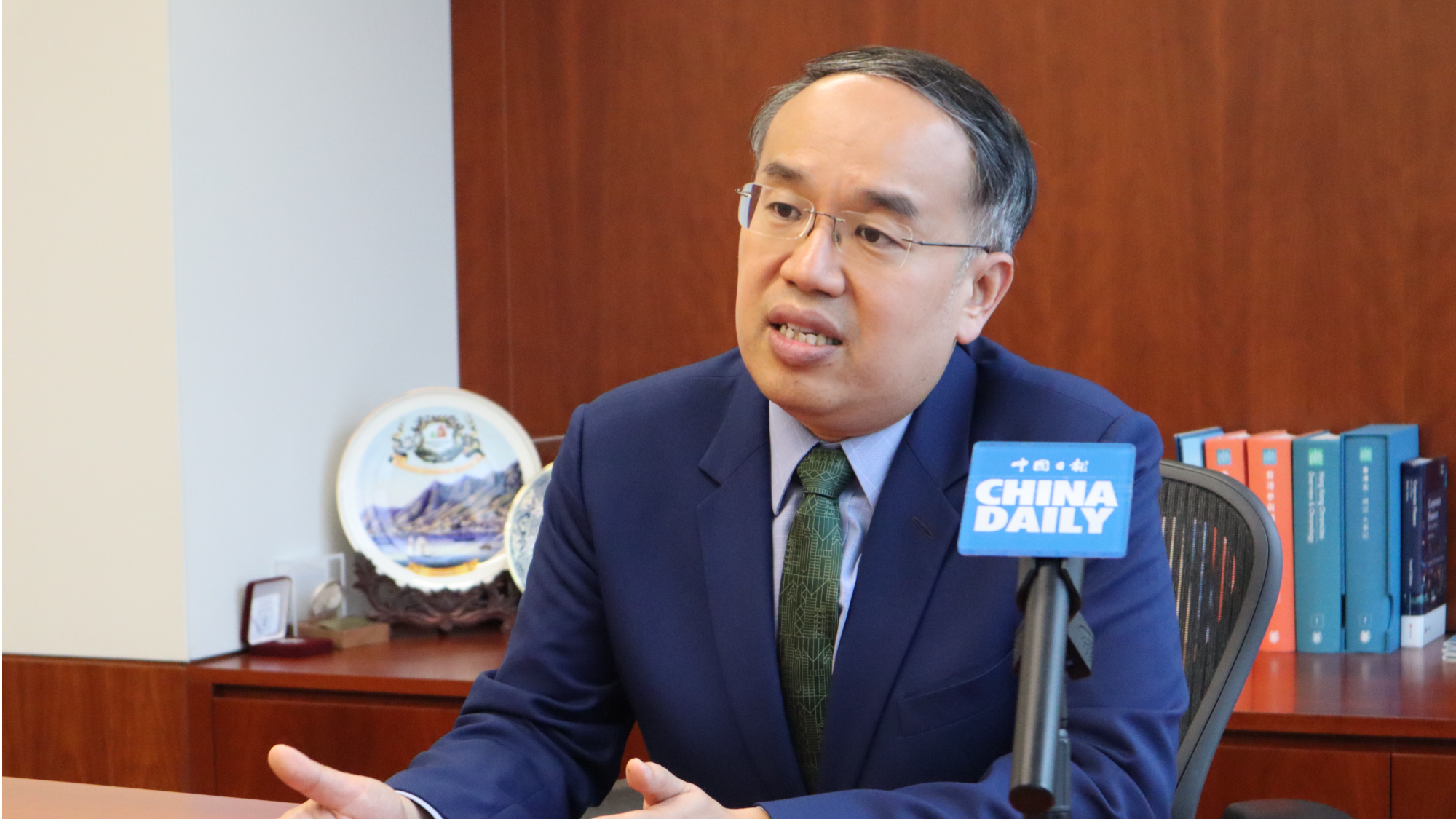
Hong Kong’s push for stablecoin and tokenized assets zero in on addressing the “pain points” of the economy, fleshing out the city’s vision of becoming a trusted financial hub powered by cutting-edge innovation and grounded in real-world applications.
 Blockchain-based stablecoin, which is typically pegged to a fiat currency and offers faster and cheaper transactions, underscores the city’s commitment to “making finance serve the real economy”, Secretary for Financial Services and the Treasury, Christopher Hui Ching-yu, told China Daily in an interview.
Blockchain-based stablecoin, which is typically pegged to a fiat currency and offers faster and cheaper transactions, underscores the city’s commitment to “making finance serve the real economy”, Secretary for Financial Services and the Treasury, Christopher Hui Ching-yu, told China Daily in an interview.
Such a vision is echoed by the second edition of the policy statement on the development of digital assets released in June, where the SAR government used the proper name “digital assets” in lieu of “virtual assets” to “give the asset class more credibility and ensure that people see these products in the right light”, Hui said.
READ MORE: New digital-asset blueprint bodes well for future development
In the emerging economy, where local currency lacks credibility and local financial intermediation is absent, this is where stablecoin comes into play as an underlying credible currency to offer a way of payment and facilitate economic activities, he added.
As blockchain and artificial intelligence (AI) stand as the next big things in the realm of financial technology, the sheer disruptive power lies in the tangible, real-world use cases at the end of the day.
According to Hui, blockchain can help streamline copper movement processes in Hong Kong’s logistics side for the London Metal Exchange, and can reduce the settlement time needed for tokenized bonds from five days to one day.
Adding to the momentum where blockchain serves as an enabler to make markets possible, Hui says some companies are mulling over the smart use of cash flows from the charging system of electric vehicles (EVs) and converting them into financial products on blockchain.
Indeed, the embrace of innovative elements in Hong Kong’s pillar financial industry continues to apace. According to Hui, the adoption of generative AI in the local financial services sector is 38 percent, way above the global average of 26 percent. New economy companies, including biotech and advanced technology firms, contribute almost a quarter of the city’s market capitalization.
As Hong Kong ramps up efforts to stay on the leading edge of financial technology, its appeal for global businesses has assumed new significance.
Since the SAR launched an “inward re-domiciliation” regime in May, Hui said the authorities have received “as many as 250 inquiries”.
Manulife (International) announced in June it will redomicile from Bermuda to Hong Kong from November, following its French rival AXA’s Hong Kong and Macao arm as the second insurer pursuant to the SAR government’s new company redomiciliation regime.
Hui has recently been on a world tour, conducting roadshows in Canada, the United Kingdom (UK) and Norway, in an effort to urge global businesses to redomicile in Hong Kong.
He met separately with the top executives of Manulife and Sun Life during a visit to Canada in May, and encouraged them to redomicile to Hong Kong. Hui said the country is looking for ways to diversify and connect East and West, in addition to its traditional North-South connectivity with the United States (US).
“Hong Kong, being a very robust financial center and a commercial hub, with well-recognized rule of law, is a natural place for these companies to move their domiciliation to,” Hui said, adding that some listed companies may follow suit.
The new regime came at a time when changes to global tax laws — that Hui described as “push factors” — drive international businesses away from traditional tax havens.
With the introduction of the global minimum tax and a related Hong Kong minimum top-up tax this year, multinational firms with annual revenues of €750 million ($876 million) or more in at least two of the previous four years should be taxed at a rate of no lower than 15 percent. The Hong Kong tax authority has the right to collect top-up tax from multinationals’ entities in Hong Kong to meet the minimum rate, should the jurisdictions in which these firms operate fail to collect the required tax.
READ MORE: WEF: Chan discusses digital assets, community development
As the new tax regime provides less incentives for large corporations to shift their profits to low- or tax-free jurisdictions, evading tax responsibility and minimizing competition among countries or regions to attract investment by lowering profits tax rates, Hui hails Hong Kong as “a natural fit” for international businesses as a credible and trusted market with the backing of the “one country, two systems” principle.
“Such a trend of redomiciliation is something very much befitting the current geopolitical development, and the need of these corporates to diversify as well as their future business plans,” he said.
In times of uncertainty, chaos, complexity and ambiguity, Hong Kong has all the elements required to be a trusted, credible partner with big stories of certainty unfolding, Hui added.
Contact the writer at sophialuo@chinadailyhk.com


